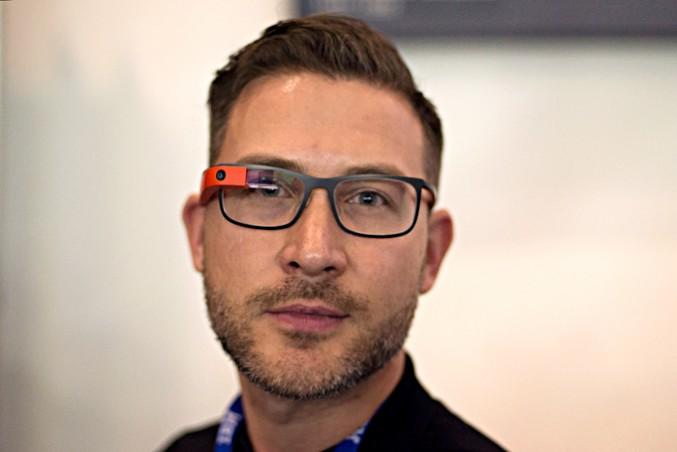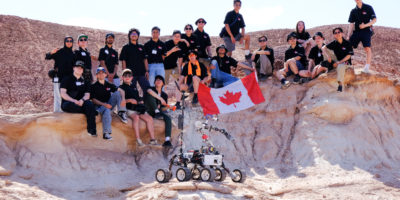By Sunday Aken
Ryerson’s Mattamy Athletic Centre (MAC) hosted Toronto’s first sports wearable technology hackathon, SportsHack.
The three-day event took place Nov. 14-16 and was partnered with Ryerson, IBM and We Are Wearable.
SportsHack invited teams to develop new and resourceful wearable technology that could be used by the sports industry.
“We’re trying to collaborate to build an innovation ecosystem,” project manager Jarrod Ladouceur said. “Ryerson is an innovation university and we want to find new ways to expand our reach. The SportsHack is just one of those ways.” Nineteen teams presented a functional demo of their device or application to a panel of judges.
“As a group of judges, we looked at a number of metrics like practicality, the effort they’ve put into it, what they were thinking when they were building it and how commercializable the technology can be,” said Hossein Rahnama, the research and innovation director of Ryerson’s Digital Media Zone.
“We were impressed by the numbers of people who participated, the quality of the projects and talents we saw. Their technology was very comparable with what’s happening in the market globally.
It shows potential.” The final three teams presented their wearable devices to head judge Bruce Croxon, former CBC Dragon’s Den personality and co-founder of Lavalife, to choose the winners.
Croxon chose Team Raisins’ armband device that is worn by athletes to track their performance during a game. Their performance data is then transferred into a heat map — colourfully representing the data values in 2D images — for coaches to analyze real-time performance. The statistics show where athletes are excelling and where they need improvement.
Second place was KANU, a team that designed a glove for rowers to extract data, including the times the rowers are synchronized.
Croxon gave third place to Caliber One, a team of high school students that designed an app that monitors exercises by tracking a user’s progress and comparing it with friends for a leaderboard workout competition.
“I love what Ryerson is doing to push Canadian innovation ahead,” said Croxon to the audience. “As Lavalife showed, you can build a business out of anything.” Runner-up prizes included a minimum of $1,000 cash, software and a mentorship opportunity.
The grand prize, granted to Team Raisins, was a $7,500 cash prize and $3,000 in software, mentorship and conference admission, as well as a spot in Ryerson’s Fashion Zone accelerator to further the idea.













Leave a Reply